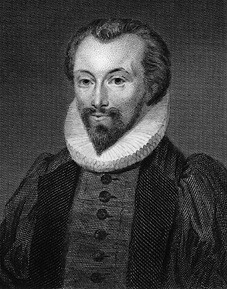Metaphysical << `meht` uh FIHZ uh kuhl >> poets is the name given to certain English poets of the 1600’s who were influenced by John Donne, the most important member of the group. Donne wrote on both religious and nonreligious subjects. Metaphysical poets who wrote mainly on religious subjects included Richard Crashaw, George Herbert, and Henry Vaughan. Lord Herbert of Cherbury, John Cleveland, Abraham Cowley, and Andrew Marvell wrote mostly on nonreligious topics.

Metaphysical poetry contains irregular, “unpoetic” rhythms and colloquial language. It also sometimes uses far-fetched or outlandish comparisons, either similes or metaphors, called metaphysical conceits. The metaphysical conceit often extends a comparison to great length to describe an emotion, idea, or situation.
In the late 1700’s, English critic Samuel Johnson first named this group “metaphysical poets” in his Lives of the Poets (1779-1781). Johnson criticized their exhibition of learning and especially their use of metaphysical conceits. Despite Johnson’s label, however, these poets were actually no more “metaphysical” in the philosophical sense than other thoughtful writers.
After being condemned by critics like Johnson, the metaphysical poets returned to favor in the early 1900’s. The essays of T. S. Eliot helped stimulate this revival. Modern poets influenced by the group include Eliot, Wallace Stevens, Hart Crane, Elinor Wylie, and Richard Eberhart.
See also Cowley, Abraham; Donne, John; Herbert, George; Marvell, Andrew.
